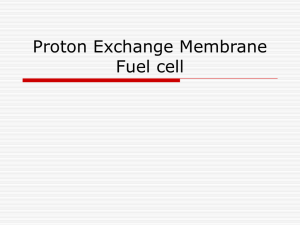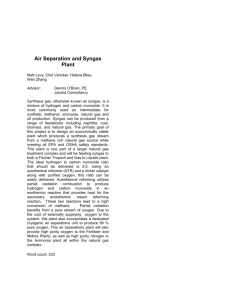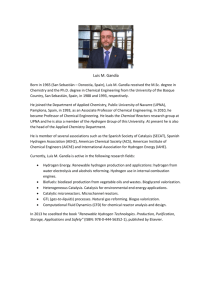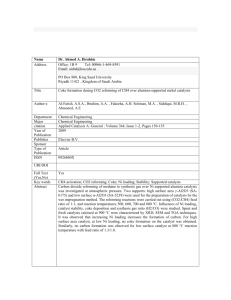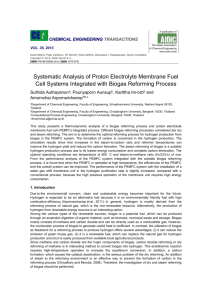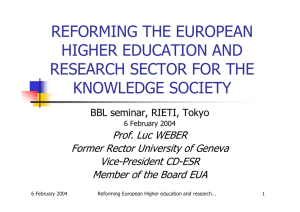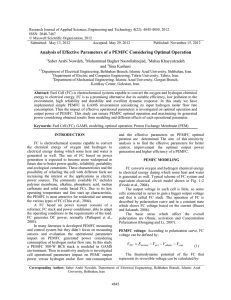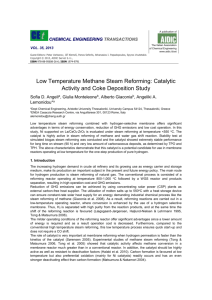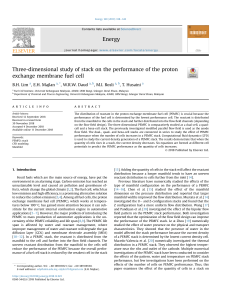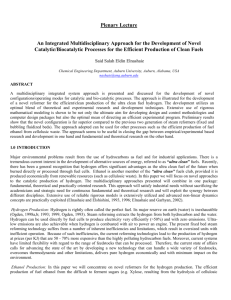Systematic Analysis of Proton Electrolyte Membrane Fuel Cell
advertisement
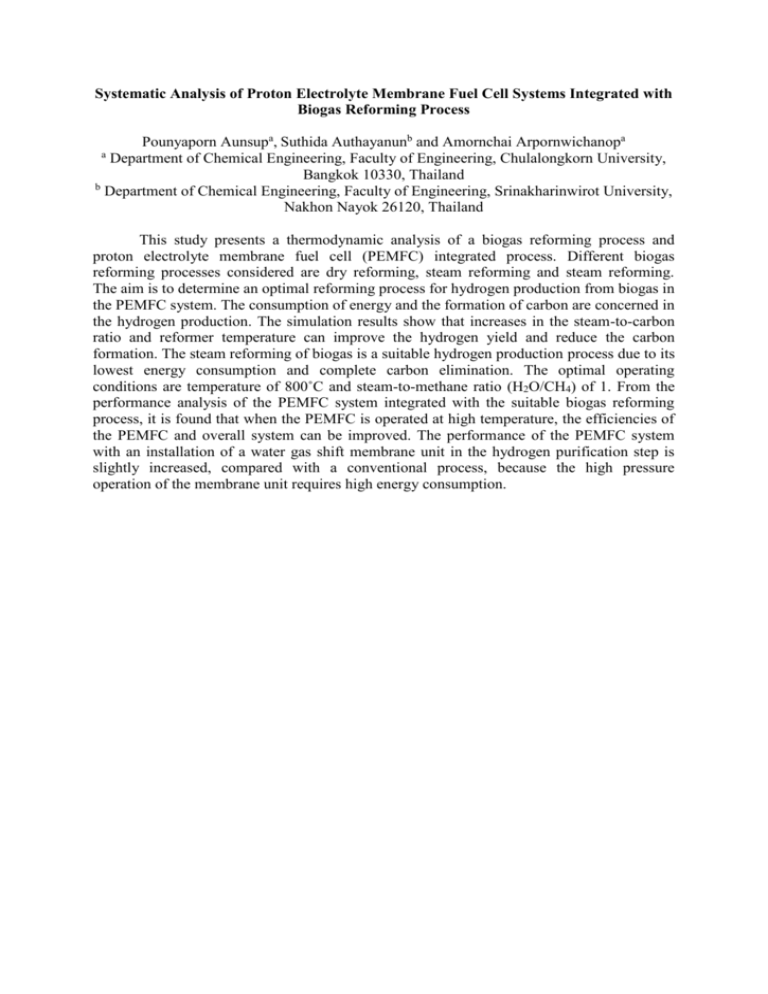
Systematic Analysis of Proton Electrolyte Membrane Fuel Cell Systems Integrated with Biogas Reforming Process Pounyaporn Aunsupa, Suthida Authayanunb and Amornchai Arpornwichanopa a Department of Chemical Engineering, Faculty of Engineering, Chulalongkorn University, Bangkok 10330, Thailand b Department of Chemical Engineering, Faculty of Engineering, Srinakharinwirot University, Nakhon Nayok 26120, Thailand This study presents a thermodynamic analysis of a biogas reforming process and proton electrolyte membrane fuel cell (PEMFC) integrated process. Different biogas reforming processes considered are dry reforming, steam reforming and steam reforming. The aim is to determine an optimal reforming process for hydrogen production from biogas in the PEMFC system. The consumption of energy and the formation of carbon are concerned in the hydrogen production. The simulation results show that increases in the steam-to-carbon ratio and reformer temperature can improve the hydrogen yield and reduce the carbon formation. The steam reforming of biogas is a suitable hydrogen production process due to its lowest energy consumption and complete carbon elimination. The optimal operating conditions are temperature of 800˚C and steam-to-methane ratio (H2O/CH4) of 1. From the performance analysis of the PEMFC system integrated with the suitable biogas reforming process, it is found that when the PEMFC is operated at high temperature, the efficiencies of the PEMFC and overall system can be improved. The performance of the PEMFC system with an installation of a water gas shift membrane unit in the hydrogen purification step is slightly increased, compared with a conventional process, because the high pressure operation of the membrane unit requires high energy consumption.




